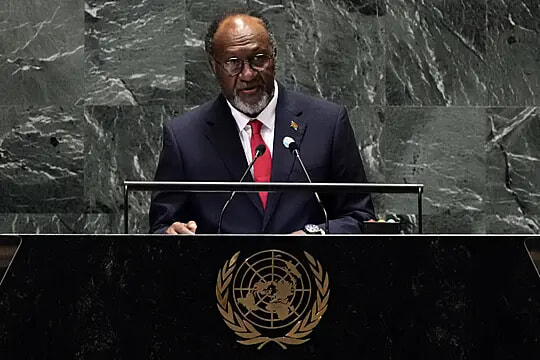
'Reservoir Dogs', 'Kill Bill' Actor, and Tarantino Favorite, Michael Madsen, Dies at 67
RIP
Published July 8, 2025
Advertisement
Advertisement
1. Forged in Chicago

Michael Madsen was born in Chicago on September 25, 1957, into a family of three children, with his father working as a firefighter and his mother as a filmmaker and author. He grew up in a city marked by grit and resilience, absorbing the values of hard work and perseverance from a young age. His early exposure to the arts came from his mother, who would go on to win an Emmy for a documentary about Chicago’s film history. After his parents’ divorce when he was 11, Michael faced the instability that would shape much of his character and career. He found a sense of purpose in Chicago’s renowned Steppenwolf Theatre Company, apprenticing under John Malkovich and learning the nuances of performance. The city’s blue-collar sensibilities never left him, even as he ventured into the world of acting. Madsen would often reflect that, had life turned out differently, he might have been a bricklayer or even a garbage man, not an actor. He took pride in his upbringing, embracing the hands-on work ethic that grounded his later roles. Early jobs included working as a mechanic in Beverly Hills, giving him an everyman authenticity few Hollywood actors possessed. He credited these experiences with keeping him humble, saying he was as comfortable digging ditches as he was reciting lines. The contradictions in his early life—toughness and tenderness, ambition and humility—would define his on-screen presence.
Advertisement
2. Stage Beginnings and Early Hollywood

Madsen’s formal acting journey began on the stage, where he performed alongside the likes of John Malkovich at Steppenwolf. He moved to Los Angeles in the early 1980s, searching for a way into the film industry while balancing work as a mechanic. Michael’s first significant screen appearances included a part on NBC’s “St. Elsewhere” in 1982 and a police officer in the techno-thriller “WarGames” the following year. He landed a role in “The Natural” (1984), playing a baseball player alongside Robert Redford, marking his entry into feature films. Throughout the 1980s, he appeared in a series of guest spots on television dramas like “Miami Vice” and “Quantum Leap.” He worked steadily but remained largely on the periphery, often cast in supporting roles that hinted at deeper complexity. Hollywood’s ecosystem was competitive, and Michael knew that survival meant embracing both the highs and lows of an actor’s life. Despite the struggles, he never lost his distinctive Chicago accent or his sense of humor about the unpredictability of the industry. He sometimes lamented that he was a man born in the wrong era, feeling more at home with the antiheroes of classic black-and-white films. His love for traditional masculine pursuits remained strong, even as he donned costumes and makeup for the stage and screen. This grounding in theater and blue-collar work would later inform the authenticity and menace he brought to so many roles.
Advertisement
3. Tarantino’s Muse

The 1990s proved transformative for Michael Madsen’s career, as he moved from supporting roles to become a fixture in American cinema. He broke through with performances in “The Doors,” playing a close friend of Val Kilmer’s Jim Morrison, and “Thelma & Louise,” portraying Susan Sarandon’s boyfriend. Madsen’s work ethic ensured he was always in demand, although his career was marked by a mix of mainstream hits and B-movie projects. In 1992, his life changed forever when Quentin Tarantino cast him as Vic “Mr. Blonde” Vega in “Reservoir Dogs.” His sadistic, unpredictable portrayal became instantly iconic, largely due to a notorious scene involving a police officer and a haunting song. The performance was both a blessing and a curse, making him a cult favorite while typecasting him as a menacing tough guy. He later admitted that the infamous torture scene troubled him deeply, especially when the actor playing the cop ad-libbed a line about having children. Despite these challenges, Madsen embraced the role’s complexities and the way it captured the attention of both audiences and critics. This was the first of many collaborations with Tarantino, a relationship that would cement his place in film history. He missed out on major roles in “Pulp Fiction” and other films, often due to scheduling conflicts or the whims of Hollywood power brokers. Nevertheless, “Reservoir Dogs” established Madsen as a force—one whose brooding charisma and steely presence were impossible to ignore.
Advertisement
4. Persona and Enduring Legacy

As the 1990s progressed, Michael Madsen became synonymous with enigmatic and wisecracking antiheroes, captivating audiences in every genre. He was unafraid to embrace both big-budget hits and smaller independent films, bringing a rare authenticity to each performance. Roles in “Donnie Brasco,” “Species,” “Free Willy,” and “Sin City” displayed his range, from mobsters and mercenaries to nurturing father figures. Madsen’s versatility allowed him to slip between villainous and sympathetic roles, always retaining an underlying sense of humanity. He thrived in Tarantino’s cinematic universe, returning for “Kill Bill: Vol. 1” and “Vol. 2” as Budd, a character both menacing and deeply flawed. In “The Hateful Eight” and “Once Upon a Time in Hollywood,” he proved his staying power and continued to surprise audiences. Madsen’s voice found new life in video games, while his photography and poetry revealed a sensitive, reflective side. Colleagues and critics alike were drawn to the contradiction at the core of his persona—a poet disguised as an outlaw. His sister, Virginia Madsen, also an acclaimed actor, often spoke of the tenderness and humor beneath his gruff exterior. Friends, including Tarantino and fellow actors, celebrated his unique aura and generosity, contrasting sharply with the tough-guy roles he played. By the early 2000s, Michael Madsen had become more than a character actor; he was an American icon, defined by contradictions and complexities.
Advertisement
5. A Shocking Loss

On the morning of July 3, 2025, Michael Madsen was found unresponsive in his Malibu home, sending shockwaves through Hollywood and beyond. Authorities were called to the scene, and Madsen was pronounced dead at 8:25 a.m., with his manager confirming cardiac arrest as the cause. No foul play was suspected, and the consensus quickly formed that the loss was sudden, natural, and entirely unexpected. His death at age 67 left fans, friends, and family members reeling, with an outpouring of tributes flooding social media and news outlets. Representatives and loved ones emphasized that, in his final years, Michael had been engaged in remarkable work on independent films and was preparing a new book. He was reportedly looking forward to a new chapter, both professionally and personally, with a slate of upcoming projects. His passing marked the end of a prolific career spanning more than four decades and over 300 screen credits. Hollywood colleagues spoke of their heartbreak, remembering him as one of the industry’s most genuine and irreplaceable talents. His sister Virginia and other family members recalled the boy he was before the legend, emphasizing his humanity above all else. Actors and directors he had worked with expressed gratitude for his generosity, humor, and unparalleled commitment to his craft. The sense of loss was palpable, not just for the roles he played but for the man who lived fiercely, loved deeply, and remained loyal to his roots.
Advertisement
6. Madsen’s Signature Roles and Impact on FIlm

Michael Madsen’s filmography reads like a roadmap of American cinema, marked by memorable roles that showcased his ability to command the screen. In “Reservoir Dogs,” his portrayal of Mr. Blonde became a defining moment, with critics praising his menacing yet magnetic presence. He carried this energy into “Kill Bill,” embodying Budd with a blend of world-weariness and quiet menace that made the character unforgettable. His performance in “Donnie Brasco” as Sonny Black placed him alongside acting giants, holding his own with Al Pacino and Johnny Depp. Madsen’s capacity to shift from villain to flawed hero was further evident in “Species,” “Mulholland Falls,” and “The Natural.” He lent his voice to animated films and video games, reaching new audiences and cementing his status as a pop culture mainstay. Many critics noted that, despite a prolific output that included many lesser-known films, he always delivered performances filled with conviction. Directors admired his intensity and introspection, relying on his instincts to elevate even the most minor scenes. His collaborations with Quentin Tarantino became legendary, with the director often crediting Madsen for helping shape the tone of his films. Peers respected his ability to turn even the smallest role into a moment of cinematic electricity, marked by a singular gravitas. For fans and filmmakers alike, Michael Madsen embodied the archetype of the American antihero, forever etched in Hollywood history.
Advertisement
7. Behind the Scenes: Triumphs and Troubles

Offscreen, Michael Madsen’s life was marked by both great joy and significant hardship, mirroring the complexities of his most iconic characters. He married three times and fathered seven children, finding fulfillment and struggle in equal measure within his family life. The tragic loss of his son Hudson in 2022 left a deep scar, an event he described as the hardest and most painful experience imaginable. Madsen was candid about the toll this loss took on his marriage and emotional well-being, revealing a vulnerability that few knew. He faced legal and personal challenges in the years that followed, including arrests related to domestic incidents and substance issues. Despite these setbacks, Michael was known for his resilience and his willingness to confront his struggles with honesty and humility. He often said fame was a two-edged sword, bringing blessings and burdens in equal measure. His poetry and photography served as outlets for processing his pain and reflecting on what it meant to be a man in a changing world. Colleagues observed that the tenderness he brought to his art came from a place of genuine introspection, not just performance. He admitted to periods of deep darkness but always maintained a sense of humor and a hope for redemption. Madsen’s ability to channel his life’s hardships into creative energy was central to his enduring appeal as both actor and artist.
Advertisement
8. Tributes to Loss

The announcement of Michael Madsen’s passing triggered a wave of heartfelt tributes from the film industry and fans worldwide. His sister Virginia Madsen shared a deeply personal statement, mourning not just a legend but the brother she cherished since childhood. Friends, co-stars, and collaborators described him as thunder and velvet, mischief wrapped in tenderness, and a poet in disguise. Vivica A. Fox, who starred alongside him in “Kill Bill,” spoke of his remarkable screen presence and their close working relationship. Walton Goggins, his “Hateful Eight” co-star, remembered him as an artist and a rascal with an aura like no one else. James Woods highlighted the contrast between the tough guys Madsen portrayed and his real-life kindness and generosity. Director Quentin Tarantino paid tribute in the foreword to Madsen’s forthcoming book, describing his unique journey as both actor and man. Social media filled with stories from fans recalling the way Madsen’s performances had impacted them, offering comfort, catharsis, and inspiration. Hollywood’s leading voices underscored the rare blend of intensity and soul he brought to every role, regardless of a project’s size. Family members expressed their intent to celebrate his life privately before sharing more details with the public in due time. The echoes of loss were powerful, but so too was the sense of gratitude for a life lived loudly, brilliantly, and authentically.
Advertisement
9. Creative Spirit Beyond the Screen

Michael Madsen was more than an actor; he was a published poet, a photographer, and a restless creative spirit always seeking new forms of expression. His forthcoming book, “Tears For My Father: Outlaw Thoughts and Poems,” was in the final stages of editing at the time of his death. Tarantino’s foreword for the collection offered a window into the philosophical and deeply personal themes Madsen explored in his writing. He channeled his experiences—the triumphs, the grief, the uncertainty—into verse, searching for meaning in a world of shifting values. Madsen’s photography captured moments of stillness and beauty that stood in stark contrast to the violence of many of his film roles. Friends noted that his work behind the camera was marked by the same commitment to storytelling that defined his acting. He saw poetry as a form of survival, a means of wrestling with the contradictions of fame, family, and masculinity. In interviews, he described art as a lifeline—something that kept him grounded through the highs and lows of his career. His creative output extended to collaborations on independent films, where he sought stories that spoke to the heart and soul. Despite the demands of Hollywood, Michael remained dedicated to his craft, always searching for the next honest moment. The legacy he leaves behind includes not only the unforgettable characters he played, but also the creative risks he took offscreen.
Advertisement
10. Final Curtain

Michael Madsen’s death marked the end of an era, but his impact on cinema and popular culture is certain to endure for generations. His ability to channel life’s contradictions into unforgettable performances inspired countless actors and filmmakers who followed. Madsen’s characters were never simply villains or heroes; they were people shaped by pain, love, and the search for meaning. His honesty about personal struggles opened conversations about fame, masculinity, and resilience in an unforgiving industry. Tributes from Hollywood’s brightest luminaries made clear that his loss was both professional and deeply personal. His legacy lives on through his children, his sister Virginia, and the countless artists he influenced during his career. The body of work he leaves behind—spanning more than 300 films and television appearances—stands as a testament to his tireless commitment. As a poet and photographer, he leaves a more intimate record of his inner life, full of questions, contradictions, and hard-won wisdom. For fans, colleagues, and loved ones, Michael Madsen will be remembered as a singular presence—thunder and velvet, legend and lullaby. His life, marked by both turbulence and tenderness, mirrors the stories he told on screen: complicated, compelling, and always worth watching. Though the final curtain has fallen, the echoes of Michael Madsen’s artistry will linger, an enduring reminder of the power of a life fully lived.
Advertisement
Advertisement
You May Also Like






